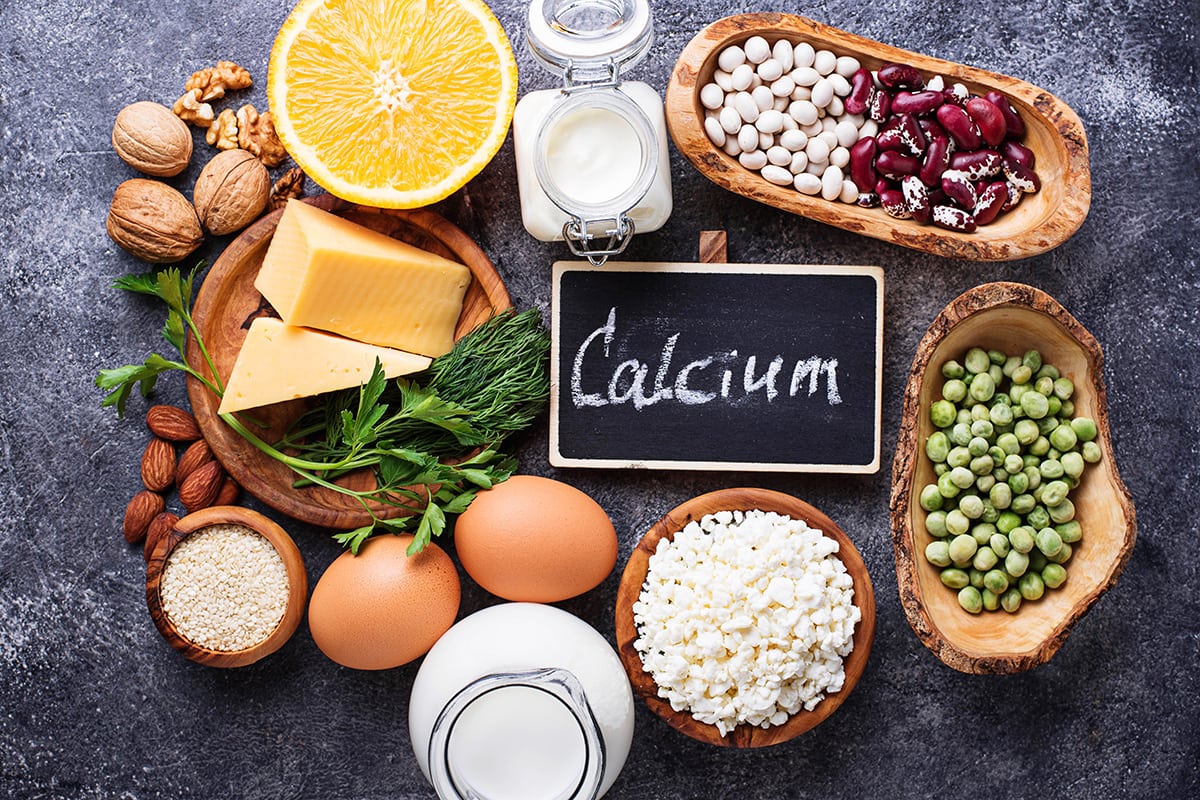
What does calcium do?
Calcium is important for strong bones, as well as for the healthy functioning of nerves, muscles and heart. You can usually get enough calcium from your diet, although in some cases a supplement is needed.
You need calcium to build and maintain healthy bones. Calcium combines with other minerals, such as phosphate, in your bones to give them structure and strength. Calcium also circulates in your blood to be used by your heart, muscles and nerves.
To absorb calcium, your body needs vitamin D. Regardless of your calcium intake, if you don’t get enough vitamin D, you will have trouble absorbing calcium and keeping your bones healthy.
What are good sources of calcium?
The best way to get enough calcium is to make sure you include high-calcium foods in your diet such as dairy foods. Dairy foods include milk, yoghurt and cheese.
Good sources of calcium:
- firm tofu (832mg calcium per cup)
- canned fish (e.g. 486mg per 90g of sardines)
- yoghurt (386mg per 200g tub)
- milk (367mg per 250ml cup of reduced fat milk)
- cheese (209mg per slice of reduced fat cheese)
Green leafy vegetables, nuts (such as almonds), cereals and legumes also contain calcium.
How much calcium do I need?
It’s important to get enough calcium throughout your life — but particularly in the first 20 years so your body makes strong bones. You also need to continue getting enough calcium as you get older to help slow down the bone loss that occurs as you age.
The Australian Dietary Guidelines recommend that 2 to 3 serves of dairy foods per day, as part of a healthy, balanced diet, will help most people reach the recommended dietary intake (RDI) of calcium.
Here’s how much calcium is recommended at different ages:
Children
- 1-3 years — 500mg per day
- 4-8 years — 700mg per day
- 9-11 years — 1,000mg per day
- 12-18 years — 1,300mg per day
Adult women
- 19-50 years — 1,000 mg per day
- 51 years and older — 1,300 mg per day
Adult men
- 19-70 years — 1,000mg per day
- 71 years and older — 1,300mg per day
What happens if I don’t get enough calcium?
If you don’t get enough calcium in your diet, or you can’t absorb it properly, your body takes the calcium it needs from your bones. Over time, this causes loss of bone density, which can lead to osteoporosis.
Osteoporosis causes your bones to become brittle and they are easily broken. The condition is very common in Australia, particularly in people over the age of 60.
You are most at risk of calcium deficiency and osteoporosis if you:
- don’t get enough calcium in your diet
- have low vitamin D levels
- have certain medical conditions, such as coeliac or kidney disease
- take steroids for a long time
- eat a diet high in certain plant nutrients (phylates and oxalates)
- consume a lot of caffeine or alcohol
Do I need calcium supplements?
It’s best to get the calcium you need from your diet if you can. However, many Australians don’t get enough, and some people need to take a calcium supplement.
It’s best to seek advice from your doctor before taking any supplements. If you’re over 50, you may want to discuss your risk of osteoporosis and whether to get your bone density tested.


